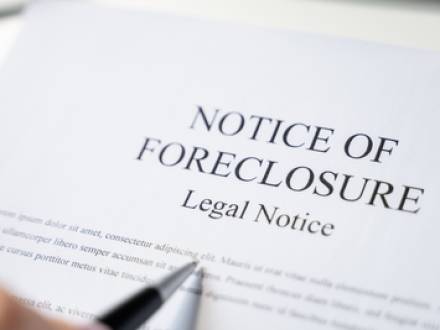1512 Artaius Parkway, Suite 300,
Libertyville, IL 60048
Call for a FREE Phone Consultation
847-549-0000
Video Consultations Also Available
 Spanish
Spanish Cantonese
CantoneseServing Clients Across 7 Illinois Locations
Recent Blog Posts
Can You Cancel a Real Estate Contract Without Losing Your Deposit?
 You can cancel a real estate contract without losing your deposit, but only under the right conditions. Whether you get your deposit back depends on when you cancel, why you cancel, and what protections your contract includes.
You can cancel a real estate contract without losing your deposit, but only under the right conditions. Whether you get your deposit back depends on when you cancel, why you cancel, and what protections your contract includes.
According to a January 2026 Redfin report, over 16 percent of home purchase agreements nationwide were canceled in December 2025, the highest rate on record. Many of those buyers had a legal path to walk away and keep their money. Others didn't, and they paid for it.
If you're buying or selling property in Lake County and want to know where you stand, our Libertyville, IL real estate lawyers can help you understand your options before a costly mistake happens.
What Defenses Can I Bring in an Illinois Foreclosure Case?
 There are several defenses you may be able to raise in an Illinois foreclosure case, depending on the facts. Illinois uses a court-based foreclosure process, which means the lender must file a lawsuit and prove its case.
There are several defenses you may be able to raise in an Illinois foreclosure case, depending on the facts. Illinois uses a court-based foreclosure process, which means the lender must file a lawsuit and prove its case.
If the lender made mistakes or did not follow the required steps, you may be able to challenge the foreclosure or negotiate for more time and better options. Our North Chicago, IL foreclosure defense lawyers help homeowners understand what defenses may apply and what to do next.
As of 2026, many Illinois homeowners are still dealing with missed payments tied to rising costs and changing financial situations. Even if you are behind, you may still have legal defenses worth exploring.
Reasons Your Loan Modification Request Was Denied
 Federal mortgage data shows that in the second quarter of 2025, lenders completed more than 8,400 loan modifications nationwide. A loan modification can feel like the last chance to save a home. When a request is denied, many homeowners feel stuck and unsure of what went wrong. However, denials are more common than people expect, even when borrowers believe they provided everything required.
Federal mortgage data shows that in the second quarter of 2025, lenders completed more than 8,400 loan modifications nationwide. A loan modification can feel like the last chance to save a home. When a request is denied, many homeowners feel stuck and unsure of what went wrong. However, denials are more common than people expect, even when borrowers believe they provided everything required.
As of 2026, lenders continue to use strict rules and financial reviews when deciding whether to approve a loan modification. Understanding why some applications fail is the first step toward figuring out what to do next. Our Grayslake, IL loan modification lawyer can help review a denial and explain whether other options may still exist.
Illinois Foreclosure Proceedings – When Must the Homeowner Move Out?
 One of the most stressful questions homeowners ask during foreclosure is when they actually have to leave their home. In Illinois, homeowners usually do not have to move out until the foreclosure case is finished and the court issues an order for possession. This process often takes months, and sometimes longer, depending on what happens in court.
One of the most stressful questions homeowners ask during foreclosure is when they actually have to leave their home. In Illinois, homeowners usually do not have to move out until the foreclosure case is finished and the court issues an order for possession. This process often takes months, and sometimes longer, depending on what happens in court.
Foreclosure remains a serious issue across the state. In a 2025 report from ATTOM Data Solutions, Illinois continued to see thousands of foreclosure filings, showing that many families are still navigating this process.
As of 2026, Illinois foreclosure cases are still handled through the court system, which means homeowners are given notice, time, and specific legal protections before they must move out. If you are facing foreclosure, our Waukegan, IL foreclosure defense lawyers can help you understand what happens next.
Understanding a Short Sale in Illinois
 When people go through tough financial times, some may find it necessary to sell what they own for far less than those assets are worth. When a property is sold for a price that is less than the amount remaining on the mortgage, the transaction is known as a short sale. If you need assistance with a short sale, reach out to a Lake County, IL real estate lawyer today.
When people go through tough financial times, some may find it necessary to sell what they own for far less than those assets are worth. When a property is sold for a price that is less than the amount remaining on the mortgage, the transaction is known as a short sale. If you need assistance with a short sale, reach out to a Lake County, IL real estate lawyer today.
At Newland & Newland, LLP, we have decades of legal experience, having helped multiple clients with loan modifications, foreclosure defense, and other sensitive issues. We will advise you of your best course of action during a short sale, keeping your future in mind.
Four Requirements for a Short Sale in 2026
A short sale is often a complex undertaking for several reasons. First, selling a house is almost always complicated. Next, since the sale price in a short sale is less than what the owner owes on his or her mortgage, the remaining amount of the loan must be taken into account. Finally, a short sale can only work if each party involved is on the same page regarding the transaction. The most difficult part of the process is often convincing the lender to allow the sale.
TIC vs. Joint Tenancy in Illinois Multi-Generational Homes
 Increasingly, multiple generations of Illinois families are living under one roof. Parents, adult children, and even grandparents are combining households for financial, cultural, or caregiving reasons, but in some cases, this can have devastating consequences. Parents may add adult children or grandchildren to the deed, but how that is done is crucial. In fact, how the deed is titled may well become one of the most important estate planning decisions you will ever make if multiple generations live in your home.
Increasingly, multiple generations of Illinois families are living under one roof. Parents, adult children, and even grandparents are combining households for financial, cultural, or caregiving reasons, but in some cases, this can have devastating consequences. Parents may add adult children or grandchildren to the deed, but how that is done is crucial. In fact, how the deed is titled may well become one of the most important estate planning decisions you will ever make if multiple generations live in your home.
Whether your home is held as tenants in common (TIC) or as joint tenants with right of survivorship can have far-reaching effects, including probate exposure, Medicaid risks, creditor claims, inheritance outcomes, and family conflict. The distinction between TIC and joint tenancy may seem purely technical, but it can profoundly affect family stability and ownership rights. Understanding the differences now can help prevent financial and legal headaches in the future. A knowledgeable Lake Forest, IL estate planning attorney will help ensure your home goes to those you choose.
Predatory Lending to Seniors as an Illinois Foreclosure Defense
 Unfortunately, many Illinois senior citizens have been steered into high-cost mortgages, unfair refinancing deals, or home equity loans they could never realistically repay. Many of these "deals" were cloaked under terms like "no-risk refinancing," "quick cash-outs," or "affordable loans." What these seniors may have ended up with is high-interest mortgages, hidden fees, and monthly payments they could never sustain on a fixed income.
Unfortunately, many Illinois senior citizens have been steered into high-cost mortgages, unfair refinancing deals, or home equity loans they could never realistically repay. Many of these "deals" were cloaked under terms like "no-risk refinancing," "quick cash-outs," or "affordable loans." What these seniors may have ended up with is high-interest mortgages, hidden fees, and monthly payments they could never sustain on a fixed income.
When foreclosure notices begin arriving, most of these senior homeowners blame themselves, unaware they may be victims of unlawful, predatory lending practices. Illinois law offers robust protections for seniors who were misled, exploited, or are victims of predatory lending practices (815 ILCS 123/).
In fact, by challenging the validity of the loan, the lender’s conduct, or the way the mortgage was sold, seniors can often delay or stop foreclosure and potentially negotiate better loan terms. If you are a senior who is the victim of a predatory loan and are now facing foreclosure as a result, you must speak to an experienced Grayslake, IL foreclosure defense lawyer.
Hidden Defects in Illinois "As-Is" Home Sales Can Backfire
 For Illinois homebuyers, a bargain price on a fixer-upper can look tempting - until they learn what "as-is" really means. Illinois sellers may assume that labeling a property as-is allows them to walk away clean with no worries about disclosure. It is important for sellers and buyers alike to have a full understanding of what "as-is" really means, and to involve a real estate lawyer in any transactions.
For Illinois homebuyers, a bargain price on a fixer-upper can look tempting - until they learn what "as-is" really means. Illinois sellers may assume that labeling a property as-is allows them to walk away clean with no worries about disclosure. It is important for sellers and buyers alike to have a full understanding of what "as-is" really means, and to involve a real estate lawyer in any transactions.
Buyers could inherit costly problems in an as-is sale, while sellers must understand that labeling a property "as-is" does not erase the duty to be honest about known defects. Whether you are selling a fixer-upper or inherited property, or buying without understanding disclosure limits, you could find yourself with a serious problem after the paperwork is signed. An experienced Waukegan, IL real estate lawyer can help ensure no mistakes are made that can come back to haunt you later on.
Illinois Foreclosure Deficiency Judgments Explained
 Many Illinois homeowners believe that once their home has been foreclosed on and sold, they no longer have any financial obligations related to the home. Unfortunately, that is not always the case. Under Illinois law, mortgage lenders may pursue a deficiency judgment. This is a court order requiring the borrower to pay the remaining balance if the foreclosure sale does not cover the full amount of the mortgage debt.
Many Illinois homeowners believe that once their home has been foreclosed on and sold, they no longer have any financial obligations related to the home. Unfortunately, that is not always the case. Under Illinois law, mortgage lenders may pursue a deficiency judgment. This is a court order requiring the borrower to pay the remaining balance if the foreclosure sale does not cover the full amount of the mortgage debt.
Whether or not a bank can or will sue depends on the type of foreclosure, the sale price, and how the judgment was entered. A Round Lake, IL foreclosure defense attorney can help you understand how deficiency judgments work and how to challenge or limit those judgments.
What You Must Know About Deficiency Judgments
Illinois law (735 ILCS 5/15-1511) addresses how a deficiency judgment may be entered when a foreclosure sale fails to satisfy the balance due on the mortgage. The lender must file a motion with the court to request a deficiency judgment. At that point, the court will verify that the sale price was fair, which can be a safeguard against the lender accepting a low offer. If the court finds that the home's sale price was not fair, the lender must provide evidence of value through appraisals and other comparable listings to justify the sale price.
Illinois Real Estate: Stigmatized Property Law
 Suppose someone died in the house you are about to buy, or that it was once the hideout for a notorious criminal. Or, what if the house is allegedly haunted, or there was a violent crime that occurred in the house? Would you want to know these things? Would you feel as though you were entitled to know? Under the Illinois Residential Real Property Disclosure Act (765 ILCS 77), only physical defects and material conditions must be disclosed to buyers.
Suppose someone died in the house you are about to buy, or that it was once the hideout for a notorious criminal. Or, what if the house is allegedly haunted, or there was a violent crime that occurred in the house? Would you want to know these things? Would you feel as though you were entitled to know? Under the Illinois Residential Real Property Disclosure Act (765 ILCS 77), only physical defects and material conditions must be disclosed to buyers.
Under the Illinois Real Estate License Act (225 ILCS 454/), brokers are required to be honest, but must only disclose facts that have a direct and detrimental physical effect on the property, which excludes nonphysical "stigma." If you are unsure what constitutes a "stigmatized property," it is important that you speak to an experienced Gurnee, IL real estate attorney. Having a knowledgeable real estate lawyer who can help ensure you do not make any missteps that could be hard to recover from gives you a definite advantage when purchasing property in Illinois.
 Stop Foreclosure
Stop Foreclosure




















